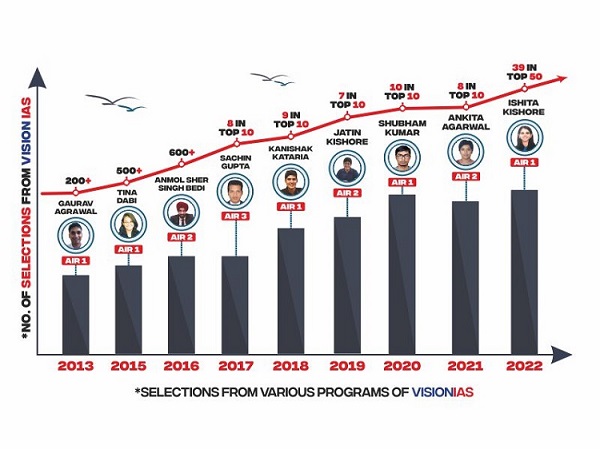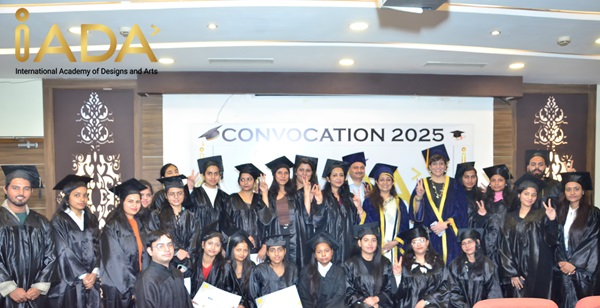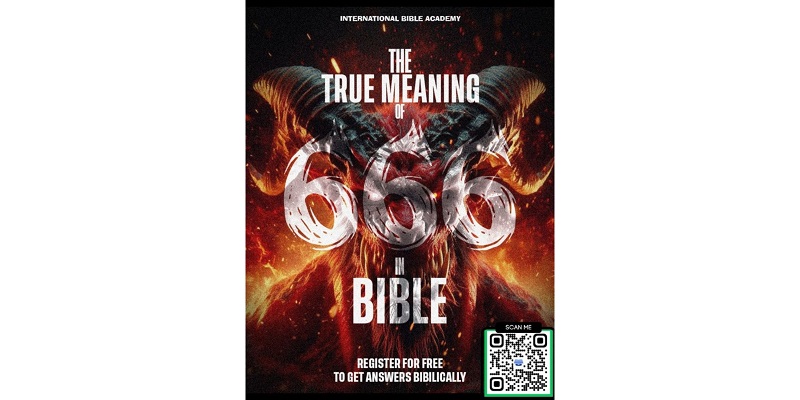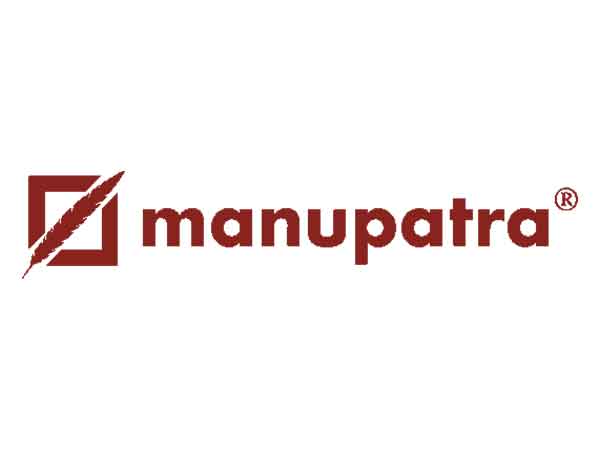Education
Art of Effective Essay Writing for UPSC CSE
Published
1 year agoon

The Union Public Service Commission (UPSC) conducts its annual Civil Services Examination (CSE) to identify and select candidates who would go on to play a central role in the development of the country. To carry out the varied roles and responsibilities in the public service effectively, Civil Servants are required to possess certain skills and abilities which are assessed through the Essay Paper of the Mains Examination.
The Significance of Essay Writing in the UPSC Examination
Through the Essay Paper, the UPSC peaks into the knowledge and interest of the aspirant over a variety of topics. Additionally, it evaluates an aspirants’ analytical skills, articulation of thoughts and expression of ideas in a coherent and logical manner. In other words, the ability to construct and weave a narrative around an issue in an engrossing and thoughtful manner is assessed.
Two Categories of Essays
A careful analysis of the Previous Year Questions reveals that Essay topics in this Paper can be broadly categorized into Information-based essays and Philosophical essays The Information-based essays primarily rely on the knowledge-related aspect of the essay topic that includes facts, data, evidence, etc. Whereas, Philosophical essays deal with abstract topics and ideas with diverse interpretations.
Therefore, aspirants preparing for Essay Paper should be comfortable dealing with both types of essays, especially the Philosophical essay topics which have been predominantly asked by UPSC in the recent past.
Beginning the Essay Writing
Essay is a work of non-fiction prose interwoven around a subject or topic in the form of arguments, its analysis, discussion, and solutions. The essence of the essay lies in its structure and flow. A well-structured essay is like a carefully designed building having a robust foundation and a good architecture. The structure of an essay essentially constitutes an Introduction, the Body and the Conclusion.
Introduction is like a doorway to the essay and must highlight the relevance of the essay, whereas body forms the core of an essay which provides scope to the writer to discuss the theme of the essay over multiple dimensions along with its limited elaboration. Conclusion gives a sense of completion to the essay through a closure statement. Here, one can give practical solutions, both short term and long term, to the issues highlighted in the thesis statement.
Choosing the Right Topic
Effective essay writing starts with choosing the right topic and its correct understanding. One should not simply opt for a topic because of its familiarity and it seems exciting. It should be based on a good understanding of the topic with adequate content stock. Therefore, a significant amount of time should be devoted to brainstorming ideas for the essay topic before actually beginning with the essay writing.
Brainstorming for Ideas
Brainstorming aids in idea generation by exploring various aspects of the topic. It consolidates related ideas for easy reference, not only for the main essay content but also for crafting diverse essay introductions and conclusions.
Deliberating Upon Introduction
Depending on the essence of the essay topic, it’s pivotal for an aspirant to thoughtfully choose the type of introduction that resonates with the theme. A compelling introduction can be anchored on references to notable personalities, insightful quotations, evocative anecdotes, or engaging narrations. The goal is to craft an introduction that not only aligns with the essay’s theme but also captivates the reader’s interest right from the outset, setting the tone for the subsequent discussion.
Body: The Most Substantive Part of the Essay
The body is the most substantive part of the Essay that reflects a multitude of qualities including multidimensional thinking, analytical ability, time management skills, among others. The explanations provided in this section should be diverse and can come from various sectors such as Social, Political, Historical, Economic, Cultural, Environmental, Ethical, etc. depending on the subject matter of the Essay.
Alternatively, it can have temporal dimensions such as Ancient, Medieval, Modern, Post-Independence, Post-LPG, Contemporary, etc. Prospects, issues, challenges, and solutions, wherever present should be explored.
The guiding principle while providing these arguments is that they should conform to the constitutional, legal, ethical, moral, and cultural mores of the society. They should further be well-substantiated with suitable examples, wherever possible.
Ultimately a Conclusion
The conclusion is crucial, as it summarizes key points, reinforces the thesis, and leaves a lasting impact, enhancing the essay’s effectiveness. Impactful conclusions can be provided in different manners by using quotations, stories, poems, etc. depending on the theme and underlying idea of the topic. Conclusions can also be prescriptive in nature while trying to address some issue or challenges. However, it is pertinent to note that they should be practical, have an optimistic undertone and provide forward looking visions. A coherence in the whole essay can also be achieved by adopting a cyclic approach by linking the conclusion to the introduction.
Balancing Substance and Style Through Presentation
Crafting a strong essay demands a balance between content and style. Hence, the significance of presentation methods should not be underestimated. Smart presentation improves the lucidity and effectiveness of arguments, thus facilitating a more efficient transmission of ideas. Further, it not only captivates the reader but also imparts a seamless logical structure and enhances the essay’s clarity and coherence.
Learning from the Insights of Toppers
Toppers, who have excelled in the exam in previous years, highlighted the importance of various presentation tools in adding more value and impact to the essay. An analysis of their answer scripts reveals effective use of headings & subheadings, simple and concise language, judicious use of diagrams, content highlighting techniques, and small paragraph, among others that add more value and voice to the content.
Right Feedback and Continuous Improvement
Applying the conventional wisdom and toppers insights into developing and improving the essay writing skills requires regular and continuous practice. Essay writing skills can further be honed when the practice is supplemented by valuable feedback from mentors, teachers and peers. Quality and constructive feedback is like a mirror reflecting strengths and areas of improvement ultimately paving the path to enhancement of essay writing skills.
Analyzing the Trend and Perspectives
Careful analysis of trends and patterns of the essay topics in previous year papers is crucial. By analyzing the previous year’s essay papers, one can obtain valuable insights into the topics, themes and perspectives asked in the essay paper. Continuous analysis and practice of the previous year’s topic facilitates targeted preparation, time management and greater sense of exam readiness.
The Journey of essay writing is not just a test of one’s writing prowess but an evaluation of one’s capacity to think critically and express oneself with clarity. Let the essay be your canvas, and the words your brush, painting a portrait of your intellect, ideas and convictions. In doing so, one not only prepares for an examination but also embarks upon intellectual exploration and self-expression.
Click Link for Instant Personalized Mentoring: https://bit.ly/3SeiQW5
Or Call us at: 8468022022, 9019066066

You may like
-


Elevate your UPSC Mains preparation with ForumIAS Pragati Books- practice with precision, perform with confidence
-


Maximize Your UPSC Score in GS Paper 3 with Abhyaas Mains 2024
-


Strategize and Succeed in UPSC Mains GS Paper 2 with Abhyaas 2024
-


Beyond Books: Cultivating Mental Resilience and Emotional Wellbeing for UPSC Success
-


Decoding CSAT: Analysis of The Difficulty Level, Aiding Performance Assessment, and Strategy Assistance For UPSC Mains
Education
International Academy of Designs and Arts (IADA): The Institute Offering The Best Professional Courses in Fashion in India
Published
1 week agoon
March 21, 2025
An individual who has a love for design and a keen interest in fashion opts for a career as a fashion designer. Time and again, one has witnessed several designers from the Indian fashion industry making a name for themselves on the global stage. A person’s inherent talent and desire for excellence bears fruit when they are guided by the right minds and mentors. Founded by C.A.Sudeep Bhargava and Dr. Renu Bhargav, the International Academy of Designs and Arts has emerged as one of the most reputed institutions in India which offers courses in fashion, design and arts. In the last few years, has managed to build a reputation for itself as an institution that offers students a wide range of courses in fashion designing to choose from. These courses, apart from being well-structured, are designed to prepare students to shine and register an impact in a highly competitive industry. The fashion-related courses offered by the academy are Basic Diploma in Fashion, Advanced Diploma in Fashion, , Bachelor of Design (B.DES) in Fashion -UG, Bachelor of Vocation (B.VOC) in Fashion -UG, Master of Design (M.DES) in Fashion-PG, Fashion Styling, Apparel Merchandising, CAD Fashion Design, Boutique Management, Garment Manufacturing, Pattern Making and Design & Communication. 
Talking about what makes IADA different from other institutions in this field, co-founder Sudeep Bhargava says, “Very few institutions in the world have as many Design-based courses as we do. Design is a broad term and a student should have the right to choose what they wish to study. While somebody might be interested in fashion design, another individual could be passionate about fashion styling , Interior Design or Furniture design . By offering students a plethora of courses to choose from, we ensure they pick what they really wish to study and excel in it. We are a fashion /interior designing institute in Noida which hosts students from all across the world”.
When a student wishes to study fashion, they try to find that one fashion designing institute that will not only provide them with the right education but also prepare them to do well in the professional world. Over the years, IADA has imparted education about fashion and design to a large number of students. While some of these students work with some of the most reputed fashion brands in India and abroad, there are many who have built a name for themselves as fashion entrepreneurs as well.
Elaborating on the same, co-founder Dr. Renu Bhargav states, “A large number of students, interested in job oriented courses in fashion designing, enroll with us. While education is extremely important, the things they learn in an institute should also help them secure good jobs and earn a livelihood for themselves in the future. We consciously work towards imparting the kind of knowledge and skills to our students that will enable them to get opportunities and make a mark for themselves in the professional world”.
A while after it came into existence, IADA emerged as the most reputed fashion/Interior design institute in Noida. In the last few years, it has cemented its status as one of the best fashion institutes in the country. Apart from fashion designing course in Noida, IADA also offers a wide range of courses in interior design. The institute provides students with a very healthy educational environment and offers them the opportunity to learn from industry experts.
Education
The True Meaning of 666 in the Bible: An Exploration of the Secrets of Revelation
Published
2 weeks agoon
March 19, 2025
For many Christians, the number 666 carries a heavy connotation, often associated with the end times. This belief stems from its mention in the Book of Revelation. But what is the true meaning of this enigmatic number? The International Bible Academy offers a free online Bible course for Christians of all ages providing an array of resources aimed at helping Christians to develop a deeper understanding of Scripture and its application in everyday life. Among the myriad of topics explored in these classes, several stand out as particularly intriguing, reflecting the profound and sometimes perplexing nature of the Book of Revelation. Some of the interesting questions which will be explored in our course are:
- Why is it important for us to understand the prophecies in the Bible?
- What are the mysteries in Revelation?
- What is the Biblical reason for birth, sickness, aging, and death?
The International Bible Academy (IBA) offers much more in its curriculum beyond these highlights—each topic is meticulously designed to encourage critical thinking, open dialogue, and spiritual enrichment. It offers a holistic approach to mastering the entire 66 books of the Bible—from Genesis to Revelation. The sense of community formed within these online classrooms allows Christians from all walks of life to come together, share insights, and grow together in faith.
A Global movement of faith
Through this free online Bible class, participants join a global community of true believers. Currently, our course is established in over 600 locations across 29 countries, including the U.S., China, Japan, Canada, Germany, Netherland, France, Spain, Australia, Italy, Austria, Southeast Asia, India, Philippines, Hong Kong, and many more., Last year, thousands of believers from young students to experienced pastors joined us in deepening their faith.
Online classes are offered for convenient access.
The added advantage of an online format means that access to spiritual growth and learning is available at the fingertips of participants, no matter where they are situated. In addition to comprehensive teachings, the course offers interactive elements that encourage dialogue, community engagement, and personal growth. Students can share testimonies, ask tough questions, and seek guidance from knowledgeable and experienced instructors who prioritize an in-depth understanding of the scriptures. Our mission is to make biblical education accessible and engaging, and we believe these classes can play a vital role in your spiritual journey.
| Level | Duration |
| Basic Course | 1 month / twice a week / 1.5 hours |
| Regular Course | 8 months / thrice a week / 1.5 hours |
How do I enroll?
https://docs.google.com/forms/d/e/1FAIpQLSegHFTbn0pvVXdTUBzNIuDGqiUqF6_SwmJ4dcfLWT9m_JxJaA/viewform
Sign up today for free by scanning the QR code in the poster or through the below links and take the first step in revealing the deeper truths of the Bible. With an array of free online Bible classes available in various languages provided in India—English, Hindi, Tamil, Telugu, Kannada, and Oriya.
With the perfect opportunity to strengthen your relationship with God and learn His will, you can embark on a journey that promises spiritual growth, community, and a clearer understanding of your role in His divine plan. Don’t miss this opportunity!
www.internationalbibleacademy.in
Instagram ID: Light_of_zion_india
Facebook: Zion India
Testimonies from Pastors and believers in India
Our program has already transformed lives and inspired many, including Pastors in India who have shared their powerful testimonies. One Pastor stated, “I hope you learn about the path to heaven, which is the purpose of faith, and how God will fulfill the history of the last Bible.“ This sentiment speaks volumes about the urgency and significance of learning biblical truths.
Another Pastor emphasized the importance of the Book of Revelation by saying, “If you are a believer waiting for the Second Coming of Jesus, the Book of Revelation records when, where, to whom, and how He will come. If you hear the word and believe it, you can anchor your faith in the promises of Scripture.“ His message is clear: prepare your heart and mind for the glorious return of Christ by immersing yourself in His Word.
The testimonies continue to inspire even, with one of our students who shared their excitement about the teachings he had never encountered before. “I’ve never heard this word before, it’s completely new to me. Even after multiple biblical courses, enrolling at IBA revealed the Bible’s stunning record of God’s plan to deliver promised blessings.”
Disclaimer: The information provided in this article is for educational and informational purposes only and reflects the teachings and interpretations of the International Bible Academy (IBA). The views expressed herein are not intended to replace personal study or spiritual counsel but to encourage deeper exploration of the Scriptures. Biblical topics such as prophecy, the Book of Revelation, and related themes may involve varied interpretations across different denominations and faith communities. Readers are encouraged to approach these subjects with an open mind and to seek additional guidance from their respective spiritual leaders. Participation in the courses mentioned is voluntary, and the content should not be construed as official doctrine of any specific church or denomination.
Education
Fair Education is a Right – Let’s End the Exploitation!
Published
2 weeks agoon
March 18, 2025
- Fair Treatment for Teachers: Proper pay, better working conditions, and the respect they deserve.
- Affordable Education for Parents and Children: No unnecessary financial burdens that keep quality education out of reach.
- Support for Government Schools – These schools are shrinking, but they are the lifeline for many children. It’s time we invest in them and give them the resources they need to succeed.
- https://rb.gy/54ryek
- https://rb.gy/dds6lq
- https://rb.gy/en9cqy
- https://rb.gy/r0uj2m
- https://rb.gy/1j4bt8
- YouTube: @Haldwani_dcp
- Instagram: @haldwani_dcp
- Facebook: @deep.chandrapande
Education
Advance Your Career with Zell Education – Your Gateway to ACCA, CFA, CMA, and More
Published
3 weeks agoon
March 13, 2025
Quality education is something every Indian strives for. The desire to succeed in academics is propelled further by right guidance and mentorship. Often, an extremely hard-working student fails to achieve their goals because they are not many times, an extremely hard-working student fails to achieve their goals owing to not being guided well. Therefore, Teachers and institutions play a crucial role in a student’s academic development and successTeachers and institutions, therefore, play a crucial role in the academic development and success of a student. If an institution offers high-quality education and provides solid mentorship, the student will witness their career soar.
Founded by the visionary Pratham Barot, Zell Education has emerged as one of the leading and most reliable institutes providing finance and accounting courses that are recognized globally. Ever since its inception, Zell Education has remained committed to providing students high-quality education driven by the expertise of faculty members. The institute focuses on providing industry-relevant training that would enable students to make a mark in their professional lives.
“One of the sought-after courses at our institute is the ACCA. ACCA full form is Association of Chartered Certified Accountants, is a globally recognized certification course focused on accounting and finance. After pursuing a course in ACCA, students can work in different spheres like audit, financial management, taxation, and consulting. ACCA professionals, apart from working in public practice, can also lend their expertise in corporate and financial services. Several students, who have done the ACCA course details from our institute, are working in reputed government agencies and private organizations”, says Barot.
Along with the structured curriculum and experienced faculty members, the high success rate of the students has contributed towards the solid reputation the institute has today. Apart from ACCA, some of the other professional courses offered by the institute are CFA (Chartered Financial Analyst), CMA (Certified Management Accountant), CPA (Certified Public Accountant), Investment Banking, Financial Risk (FR) and International Financial Services (IFS).
Elaborating on what gives Zell Education an edge over other institutes, Barot states, “From the time we started, our goal has been to make things convenient and comfortable for our students. We offer flexible learning options and give our students the option to choose between offline and online learning. Our faculty members, apart from being highly experienced in the academic space, also have industry expertise. Our curriculum has been designed thoughtfully and aligns with global standards.”
For years, Zell Education has boasted of a very high passing rate. The institute provides students adequate assistance during the placement season and ensures they get professional opportunities befitting their skills, knowledge, and aptitude. Upon visiting zelleducation.com, the official website of the institute, one can get all the relevant information about the courses and certifications being offered.
Education
Manupatra Hosts Nationwide Law Teachers Conclave to Strengthen Legal Education
Published
1 month agoon
February 28, 2025
In its continued commitment to supporting the legal fraternity, Manupatra, a pioneer in legal technology, organized the Law Teachers Conclave across India’s East, West, North, and South regions in collaboration with leading law schools. This initiative aimed to enhance learning, development, and digital transformation in legal education.
By hosting the conclave at regional levels, Manupatra sought to ensure accessibility and inclusivity for educators nationwide. The conclaves were organized in partnership with:
1. West Region Law Teachers Conclave – in association with GNLU, Gandhinagar
2. South Region Law Teachers Conclave – in association with R.V. University, Bengaluru
3. North Region Law Teachers Conclave – in association with NLU, Delhi
4. East Region Law Teachers Conclave – in association with NLU, Odisha
The conclaves witnessed participation from over 1,200 law educators, including full-time, part-time, ad-hoc, and visiting faculty members from across India. These events were supported by the hosting universities and industry bodies such as SILF and GCAI.
With over 70 speakers and resource persons, the conclaves featured insightful discussions on a wide range of topics under the theme “Empowering Legal Educators for Tomorrow.”
Key Takeaways from the Conclave
The deliberations at the Manupatra Law Teachers Conclave highlighted critical challenges and advancements needed in legal education, including:
1. Integration of Technology in Legal Education – Law faculties require training in digital resources and innovative teaching methodologies to enhance student learning outcomes.
2. Pedagogical Enhancements – There is a need to transition from traditional lecture-based teaching to interactive and experiential learning, such as moot courts, case studies, and interdisciplinary approaches.
3. Practical Exposure and Industry Collaboration – Faculty members should engage more with the legal industry, including law firms, the judiciary, and corporate legal teams, to align academic teachings with real-world practices.
4. Global Competencies and Cross-Disciplinary Learning – Law schools must prepare students for international legal frameworks and develop skills in analytical thinking, project management, and professional ethics.
5. Academic Social Responsibility (ASR) – A call for stronger collaboration between academia, industry, and government to foster holistic legal education.
Recommendations for a National Capacity Building Program
In response to these observations, Manupatra is proposing a National Capacity Building Program for Law Faculty, emphasizing:
* Regular faculty development workshops and certification programs endorsed by the Bar Council of India (BCI) and University Grants Commission (UGC).
* Workshops and training sessions focusing on digital literacy, emerging legal fields, and contemporary teaching methodologies.
* A national-level digital resource hub offering curated content, research materials, and interactive teaching guides.
* Exchange programs and global collaborations to expose law faculty to international best practices.
* Mentorship programs where senior legal educators and industry experts guide young faculty members.
* Establishment of legal education research centers to enhance teaching methodologies in law schools.
* Secondment programs for law faculty to gain practical experience by working with law firms and corporations, which they can integrate into their teaching.
A well-structured, government-backed Capacity Building Program will significantly improve the quality of legal education in India and contribute to producing competent legal professionals who uphold the rule of law effectively.
Manupatra urges all stakeholders to consider this recommendation and initiate the necessary discussions to develop a framework for the Capacity Building Program. Manupatra remains committed to collaborating and providing further insights to support this important initiative.
More details https://www.manupatracademy.com/home/event
About Manupatra
Manupatra, a leading legaltech company, has been at the forefront of innovation in law and technology since 2000. Its flagship online legal research platform is the preferred tool for legal professionals, offering comprehensive legal research solutions. Manupatra also provides a suite of legal operations solutions, including contract lifecycle management, compliance management, case management, notice management, and litigation tracking.
For media inquiries, please contact: Priyanka Patel Manupatra
Email: ppatel@manupatra.com
Trending
-

 Entertainment3 years ago
Entertainment3 years agoSmall-town girl Anjali Kumari’s hottest Bollywood song “Katra Katra Again” compared to Mallika Sherawat’s
-

 Education1 year ago
Education1 year agoFostering Sustainability: Highlights and Insights from ICSE 2023
-

 Business2 years ago
Business2 years agoGreat Place To Work Recognizes LoginRadius as One of India’s Best Workplaces
-

 Technology1 year ago
Technology1 year agoCrewsphere & ICP’s Innovative Virtual Darshan Applauded by Deputy CM During Navratri at Mata Chintpurni Shrine